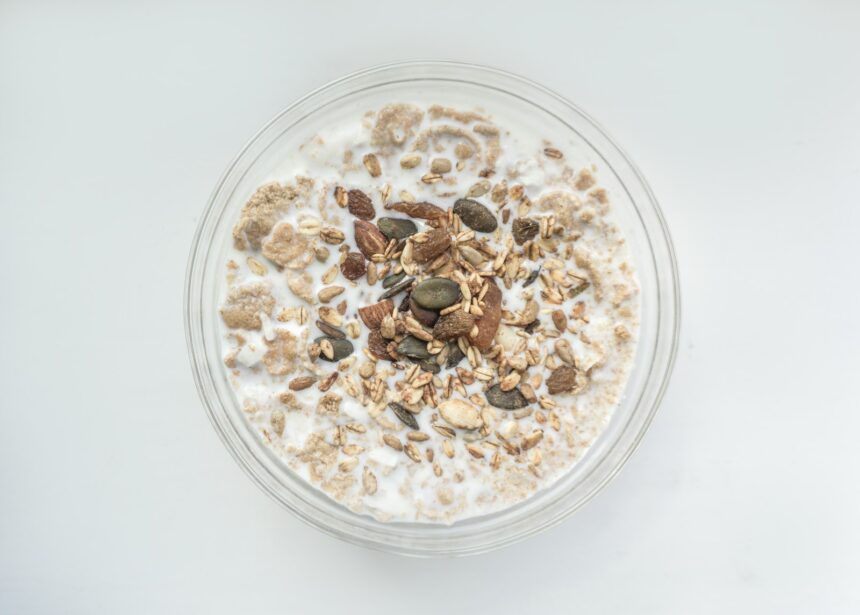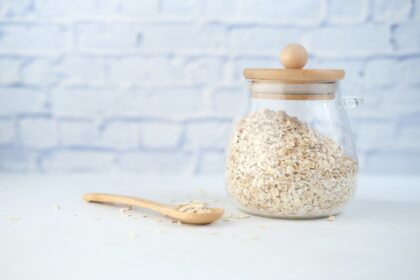You might reach for a bowl of muesli in the morning thinking you have made a healthy choice. It looks innocent enough—grains, nuts, maybe a few dried fruits. It is often promoted as the go-to breakfast for anyone trying to lose weight. But appearances can be deceiving. That bowl might be doing you more harm than good if you are not reading the label or measuring your portions properly.
Some versions of muesli are loaded with sugar and unhealthy fats that turn what should be a nourishing meal into a sneaky calorie bomb. You may be eating what you think is a slimming breakfast, only to find yourself hungrier, more sluggish, and surprisingly stuck when it comes to weight goals. And all this is happening before lunch.
So the real question is this: does muesli help you shed pounds, or is it just clever branding? Experts say the answer depends entirely on what kind of muesli you choose, how much you eat, and what you mix it with.
Does Muesli Actually Support Weight Loss?
Nutrition coach and fitness expert Varnit Yadav points out that the idea of any single product being a magic weight loss solution is pure marketing. Muesli may be advertised as healthy, but that does not guarantee results. Your progress depends on your overall calorie intake and how well you manage your food combinations.
If you eat too much of even the so-called healthy stuff, you will gain weight. The key is knowing what goes into that bowl. Muesli can fit into a balanced diet, especially if you are aware of its nutritional makeup and keep portion sizes under control. Look for muesli that offers a decent amount of fiber without drowning in sugar.
Muesli will not do you any favors if it is loaded with added sweeteners, soaked in oil, or has an excessive calorie count. Some versions pack up to 500 calories per 100 grams. That is more than many full meals.
Fiber Makes Muesli a Solid Option—But Not Always
The fiber content is where muesli can shine. When it is done right, a fiber-rich bowl helps you feel full for longer, curbs cravings, and makes it easier to avoid snacking unnecessarily. That extended feeling of satiety is one reason why people believe it helps with weight loss.
If you are looking for something to keep you fueled through the morning, a proper portion of muesli can be helpful. But again, it all comes down to ingredients. Whole grains, seeds, and a reasonable amount of dried fruit can make muesli beneficial. Overdo it with sugary toppings or oversized portions, and that same breakfast turns into a burden on your diet.
Healthy muesli usually contains no added sugar or only minimal amounts. The best kinds are based on oats, wheat, or rye and offer a generous dose of fiber. Nuts, seeds, and dried fruits are great additions too—just keep them in check. A sensible portion would be around 40 to 50 grams.
How to Make Muesli Work in Your Diet
You can easily turn muesli into a nutritious part of your breakfast, but only if you balance it correctly. One of the most effective strategies is to pair it with a source of protein. Adding Greek yogurt or even a spoonful of protein powder can help manage the carb-protein ratio, making the meal more satisfying and stabilizing your energy levels.
Another tip is to stay away from added sugars. Skip the spoonful of honey or syrup and opt for natural sweetness instead. Fresh fruit such as berries, banana slices, or chopped apple can do the trick while also boosting the vitamin content.
Portion control is also essential. Eyeballing your serving might feel convenient, but it can lead to eating far more than necessary. A kitchen scale takes the guesswork out of the equation and helps you stay consistent with your calorie intake. Getting this part right is especially important if you are trying to track your progress or manage your weight closely.
Muesli is not the enemy, but it is not always the friend it claims to be either. The key lies in paying attention to the ingredients, keeping the serving size reasonable, and building a complete meal around it. With the right mix of nutrients and awareness, it can be a smart way to start your day. Otherwise, it might be just another breakfast trap disguised as a health food.










